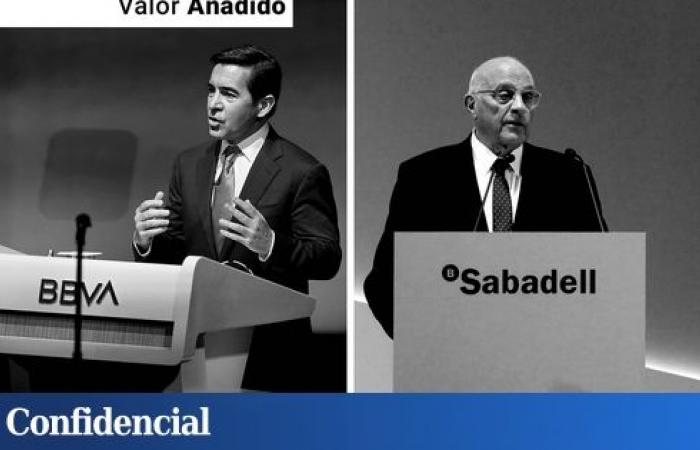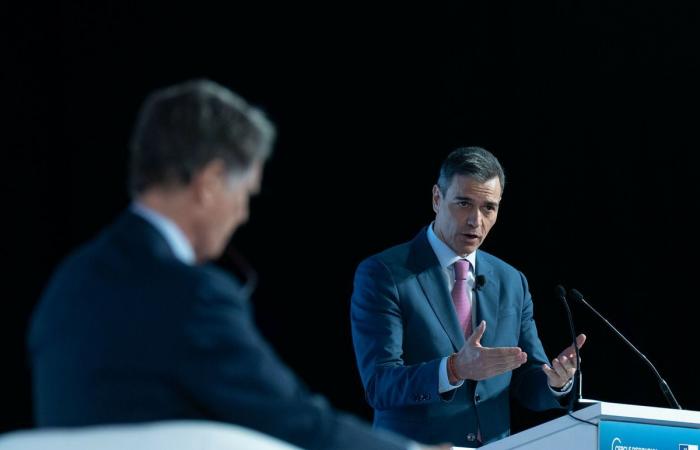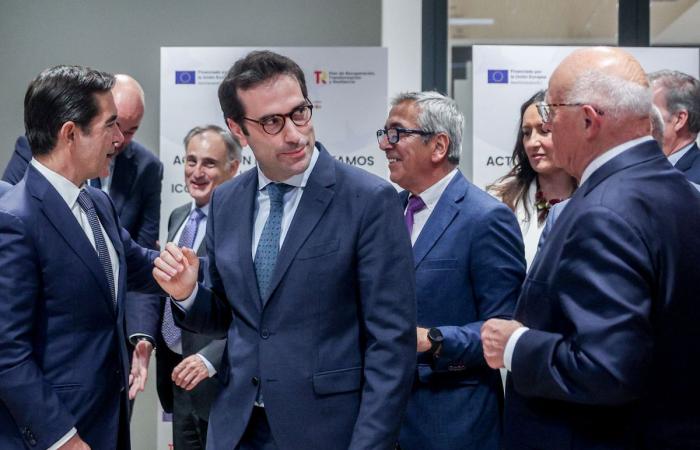BBVA’s plans to acquire Banco Sabadell They face an unexpected test. Once, with conditions, the examination carried out by the CNMC and with an eye on a possible veto by the government, the president of the same, Pedro Sánchez, has announced the decision to submit the operation to public consultation, before issuing his own verdict.
The consultation The Ministry of Economy will launch this Tuesdaywithin 15 days that minister Carlos body has to decide whether to raise the resolution of the CNMC to the Council of Ministers.
In this way, the Executive will offer all interested parties, citizens and associations, the possibility of raising their arguments for or against union Before deciding whether it allows you to continue under the conditions raised by competition or decide to modify the terms.
The movement, at first glance, can be logical, since it supposes collect the maximum possible information Before adopting a definitive decision. But at this point in the process, almost a year after the launch of the offer, it can raise doubts about the real intentions of the government.
You may be interested
Lamelas frames. Barcelona
In its recent exam, the CNMC decided to block the possibility of appearing to third stakeholders, to the point that rejected almost 80 requestsamong them from business associations or unions.
These will now have the opportunity to officially send their reasoning to the government about why it would have to favor or not the operation comes to fruition. And you can expect that are more who do it in a negative sensesince the majority of person rejected by the CNMC were of employers, unions and associations of consumers who oppose the OPA, because they see risks for the offer of services and credit to SMEs, due to excess concentration in some areas, affecting individuals, or by the impact on employment.
The role of the sector
In fact, Foment and UGT have brought the rejection of appealing to the National Court, which admitted the resources. Although nothing relevant is expected in this process regarding the already published resolution of the CNMC, it does show The predisposition of some economic agents (Generally, the most critical) to comment on the OPA.
The arguments wielded by BBVA and its advisors to try to justify the OPA (this Monday its president, Carlos Torres, has once again presented it as “a growth project, to create a stronger and better prepared bank for the future”) seem, at first glance, at first glance, less powerful to mobilize third parties In his defense. There is the doubt of whether other financial entities will do so, which could support the operation, in defense of a less severe competitive environment, as well as the freedom of the entities to execute the operations that estimate more favorable to their interests.
After all, in the market test carried out by the CNMC, whose results will be known when the full report is published in two weeks, there have been responses that have subtracted strength to warnings on competition and about the risk for SMEs that Sabadell, employers, unions and other associations. These reasoning They have come from other financial entities.
 Opinion
OpinionYou may be interested
Miquel Roig
It is expected, in any case, that the public consultation that Economy will launch serves to carry arguments against the OPA to a government that has repeated to satiety throughout these 12 months its rejection, as they have done several of its parliamentary partners, since adding the Catalan nationalist parties.
In this sense, the role of Pere Soler has caught the attention of Pere Soler, the vowel designated by Juns for the CNMC, which last week supported the favorable vote (although with conditions) of the organism to the operation, to which the Catalan party has opposed from the first day. This weekend, through his social networks, the leader of Junts, Carles Puigdemont, exculpated Soler and reiterated the opposition of his party that BBVA can absorb Sabadell, for the risk of a worsening of business financing in the region. But in the tone of his message (in which he doubted the disposition of the Spanish government to veto it) a a certain conformism with the conditions filed by the CNMCsomething that some actors have also interpreted in the last messages of other Catalan political actors, such as Oriol Junqueras or the president of the Generalitat, Salvador Illa.
But when resorting to the public consultation, the government seems interested in enhance the voices most contrary to the merger of BBVA and Sabadell, what can give an idea of where their intentions are inclined. It would be to be seen, in any case, if those arguments are used to spin fine spinning and moderately adjust the commitments (remedies) to BBVA or harden them aggressively, making the operation viable. This can do so with a view to protecting the general good, as Pedro Sánchez has said, protecting what he calls territorial cohesion, or simply seeking to alter the profitability of the operation.
BBVA has made it clear that he would withdraw the OPA if the operation ceases to be profitable
In this sense, the CEO of BBVA, Onur Genç, has already said several times that BBVA would withdraw the OPA if the conditions cause it to cease to be a profitable operation for the bank. But there is another matter more imminent, and it is that government intervention Reduce the profitability calculated by large investors When making numbers to decide whether they accept the exchange offer and reinforce their message of opposition to the operation. Keep in mind that, although BBVA Buy Sabadell, he will need the authorization after economics to merge the banks.
BBVA executives have always insisted that the bulk of the synergies are in technology and operational and that would even be captured if there is no fusion. But we will have to see if this message convinces the great funds that are in BBVA and Sabadell, and also If the possible intervention of the Executive influences the decision of the minority. A year ago, 48% of the capital of the Catalan bank were in the hands of minority, many of them customers. And although it is believed that this percentage has been reduced – there is ceased to publish it – remains greater than in other banks.
Almost a year after BBVA was launched by Sabadell with a hostile OPA, all possibilities remain open and cannot be expected to be a public consultation that determines which one that ends up resulting in the winner. But according to the bias that, a priori, can be expected of it, the government’s appeal to this route does not seem to indicate Nothing flattering for fusion defenders.
One year of uncertainty
While this lever is launched, economy has decided Ask, in parallel, to the ministrieswhether or not they must elevate the opinion. In case it is decided to go through the Council of Ministers, the Government would have 30 days to decide whether to validate, soften or harden the list of commitments. That is, phase three can last 45 business days, almost two months by not counting holidays.
A period that only extends the uncertainty of two entities that already add up to a year of battle around a link that many voices, with Sabadell at the head, cross out of undesirable. Now, the government will give them Another opportunity to be heard.








